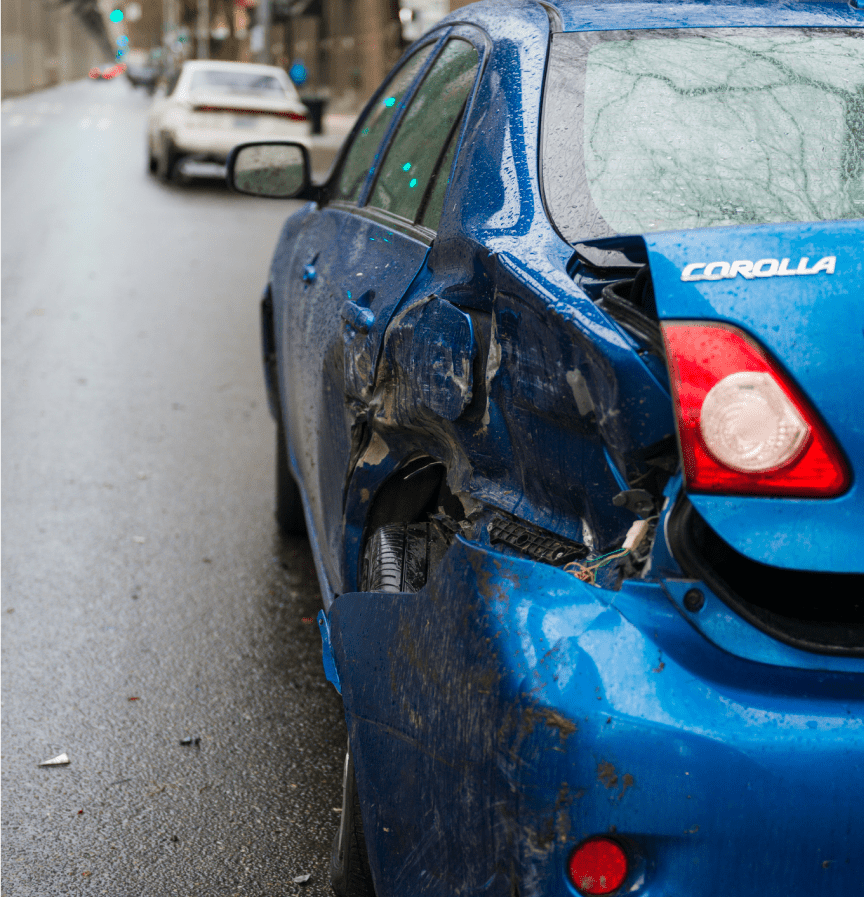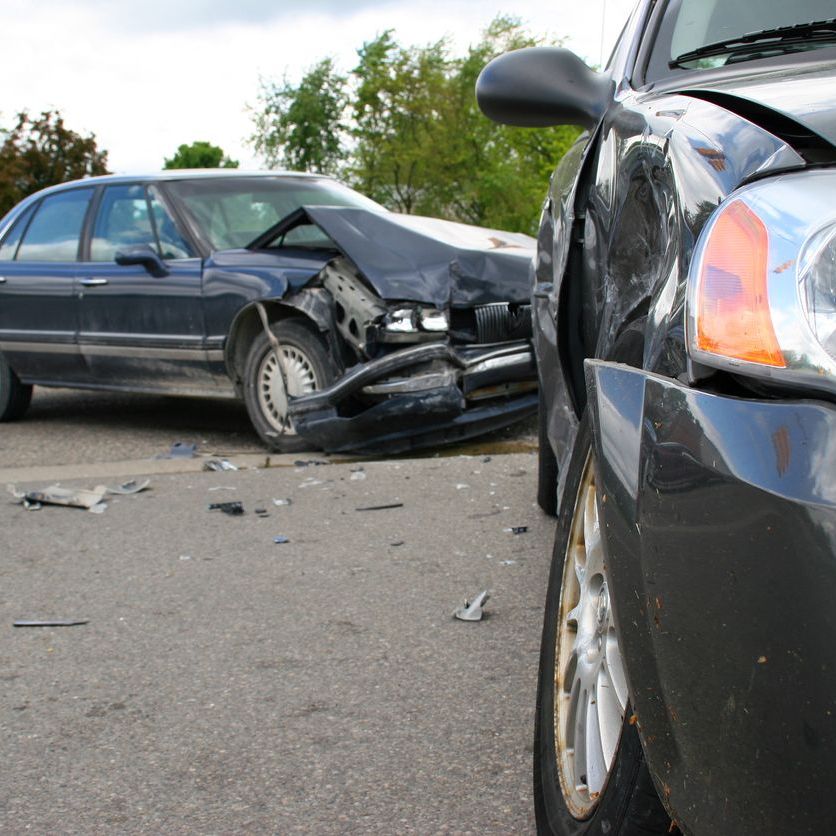
Hit and run is a serious charge in Georgia, and conviction brings a wide range of devastating penalties. Beating this charge requires expert legal representation, and the criminal defense attorneys at Joseph Williams Law can help. Schedule a free consultation today.
In the wake of a sudden car accident, it can be difficult to determine your ethical and legal role as a respondent, especially in the heat of the moment. You could be disoriented by the crash, even suffering from injuries yourself. Regardless, failing to respond appropriately could land you in legal trouble and even result in you being charged with a hit and run.
Ultimately, car accidents can cause many people to react in a way that may be unexpected or seemingly irresponsible, but that doesn’t mean that they’re guilty of a crime. In the sections below, we’ve outlined everything you need to know about your responsibilities as a driver when these incidents occur and how our law firm can defend you in court should you be charged with hit and run.
Have questions about your case? Time is of the essence, so don’t delay: Call Joseph Williams Law at (912) 259-6548 to schedule a free consultation. Our law firm has successfully defended the rights of countless Georgians for nearly a decade and can help you navigate your legal options.
What Is a Hit and Run Under Georgia OCGA § 40-6-270?
ost drivers are familiar with the general definition of what constitutes a hit and run, but it’s important to understand how what it means under Georgia law and the penalties assigned for conviction. In Georgia, OCGA § 40-6-270 says that when the driver of any vehicle is involved in a car accident and there is damage to the vehicle and/or the other driver, passengers, or a pedestrian bystander has sustained injuries, they must:
- Stop their vehicle as soon as it is safe to do so
- Park their car as close to the accident site as possible
- Give their name, address, and the registration number of the vehicle they are driving
- Provide the driver’s license information if asked
- Provide reasonable assistance to any injured person at the accident site
- Contact emergency medical services and police if there are any injured parties who are unconscious or cannot communicate
OCGA § 40-6-270 only applies when you’ve hit a vehicle “which is driven or attended by any person” or if you’ve hit a pedestrian. Georgia hit-and-run laws suggest that you may be allowed to simply leave a note or contact the police if you hit a parked car with no obvious passengers or driver, and no other pedestrians were hit.
Factors a Prosecutor Must Prove in a Hit and Run OCGA Conviction
Generally, if an individual is charged with hit and run, the prosecution will need to prove that the individual carried out a few basic but essential elements of the charge. These are:
-
- Accident involvement. The prosecutor must establish that the defendant was involved in a motor vehicle accident. This could include collisions with other vehicles or pedestrians
-
- Failure to stop. The prosecutor must demonstrate that the defendant willfully failed to stop at the scene of the accident. This includes failing to immediately stop their vehicle, failing to return to the scene, or failing to provide appropriate identification and assistance as required by law.
-
- Leaving the scene. The prosecutor must prove that the defendant left the scene of the accident without fulfilling their legal obligations. Leaving the scene of the accident before exchanging information with other parties involved or refusing to provide assistance to injured persons and failing to contact law enforcement are all considered violations of OCGA § 40-6-270.
-
- Knowledge of the accident. The prosecutor will need to establish that the defendant had knowledge of the accident. This could include evidence showing that the defendant was aware they were involved in a collision but chose to leave the scene regardless.
Lastly, if the person who fled the scene of the accident violated any related crimes such as fleeing or attempting to elude or any other aggravating factors, the prosecution will also need to provide specific evidence to convict the defendant of those crimes as well.
What Are the Penalties for a Hit and Run in Georgia?
The penalties that a hit-and-run defendant may range from a $300 fine to five years in prison, depending on the seriousness of the accident and the defendant’s actions or prior convictions. Below is the full range of penalties an individual could face in Georgia.
1st Offense
If the injuries are minor and it’s a defendant’s first incident of hit and run within five years, the defendant will be charged with a misdemeanor. Conviction of this charge typically involves a fine between $300 and $500 and/or a jail sentence of up to one year.
2nd Offense
If the defendant has been convicted of a previous hit and run in the last five years, they will face a fine of $600 to $1,000 and/or a jail sentence of up to one year, so long as there were no serious injuries at the scene of the incident. A second offense of hit and run will be charged as a misdemeanor.
3rd Offense
If charged with a third hit-and-run accident in five years and no serious injuries were sustained at the site of the accident, the individual will be facing a fine of $1,000 and/or jail time of one year. A third-offense hit and run will be charged as a misdemeanor, however, any subsequent convictions will result in felony charges.

Hit And Run Involving Death Or Serious Injury
If a driver hits an occupied car or person and fails to stop or return to the scene of the accident, the driver will be charged with an immediate felony if the accident resulted in the death or serious injury of anyone at the accident site. Although OCGA § 40-6-270 doesn’t specify what exactly constitutes a “serious injury,” our firm has seen felony charges applied to incidents where the victim was:
-
- Permanently disfigured
- Endured the loss of a fetus
- Broken bones or fractures
- Coma
- Loss of an organ or function
If you’ve been charged with a hit and run in Georgia, and a person at the accident site was affected by any of these injuries, you must have effective representation on your court date. This is especially important if you are considered a habitual violator. Call Joseph Williams Law at (912) 259-6548 or use our online contact form to start building your case.
License Implications of a Georgia Hit and Run Conviction
A hit-and-run conviction will also affect your driver’s license. Note that a hit-and-run conviction may also include other serious charges, such as felony DUI, fleeing and eluding, or vehicular manslaughter. For example, if you’ve been convicted of a felony DUI in the past five years and are then found guilty of a hit and run, you’ll be facing “second offense” penalties when it comes to the following license implications:
- First conviction results in a license suspension for one year.
- Second conviction is punishable by a license suspension for three years.
- Third conviction may result in a license suspension for five years.
If you’ve had your license suspended due to a hit-and-run conviction, you may be eligible to have your license reinstated before the suspension term. However, you will likely need to pay a $200 reinstatement fee and complete a defensive driving course first.
Overlap with the Duty to Report Accident Law
In many ways, a driver’s legal obligation to remain at the accident site and their obligation to report an accident are very similar. However, there are a few important differences. Most notably, a hit-and-run offense can be treated much more seriously—especially if the accident results in serious injuries or death.
Leaving the scene of an accident in any circumstances will be considered a hit a run if the accident resulted in any property damage or injuries. However, your duty to report the accident to a police officer begins when there is at least $500 in damage. In other words, minor scratches don’t need to be reported, but you aren’t allowed to leave the scene of the accident.
Lastly, the penalties for misdemeanor hit and run are comparable to failing to report an accident, and both charges incur a maximum fine of $1,000. However, it’s important to note that failing to report an accident can’t be tried as a felony—a hit and run can.
Legal Defenses To Hit And Run Charges
There are many situations where bystanders or local law enforcement may suspect someone of perpetrating a hit and run, but unless the prosecution can prove specific that specific actions were carried out, a driver cannot be lawfully charged with hit and run. Below are a few examples of possible defenses our firm may employ to help our clients get these charges dismissed.
There Was No Driver In The Car You Hit
Georgia law says that to be charged with hit and run, a driver needs to either hit a pedestrian or an occupied car. Let’s say that someone accidentally backs into a parked car while parallel parking and the owner of the vehicle is nowhere to be found. If a reasonable effort is made to contact the driver of the unattended vehicle and exchange information, the at-fault driver can’t lawfully be charged with hit and run.
You Returned To The Scene Of The Accident
In more serious car accidents, one motorist may need to travel to a safe location before returning to the scene of the accident to make sure the other driver or bystanders are okay. Maybe there’s a massive fire or traffic is so severe that they can’t safely pull over. Whatever the reason is, it’s perfectly legal for a driver to seek a safe place to pull over, so long as they return to the accident site when it’s safe to do so and alert the proper authorities.
You Sustained Serious Injuries
If you’re in a car accident and you’ve sustained serious injuries that require immediate medical attention, you can’t be expected to remain on the scene to exchange insurance information. Any reasonable court will be able to differentiate an irresponsible driver who intentionally flees the accident and one who left to seek immediate medical attention, especially if there’s evidence that can substantiate this.
You Weren’t Involved In The Accident
In the chaos of a car accident, bystanders or law enforcement may incorrectly identify the responsible driver. Perhaps a witness incorrectly wrote down a license plate number, or maybe someone gave a description of hit-and-run driver who resembled you but wasn’t. In these situations, our firm would easily be able to have criminal charges dismissed, especially if an alibi can be produced.
Joseph Williams Law: Top Georgia Hit and Run Attorneys
Although some cases are certainly more clear than others, the real defining factor in defending against hit-and-run charges is almost always a qualified and experienced criminal defense lawyer. When your future’s on the line, it’s never a good idea to take a chance on an inexperienced attorney.
With nearly ten years of experience defending Georgians in hit-and-run cases and a wealth of resources at our disposal, our law offices have everything you need to mount a robust defense. When you’re ready to fight for your freedom, call Joseph Williams Law at (912) 259-6548 to schedule a free case evaluation.
